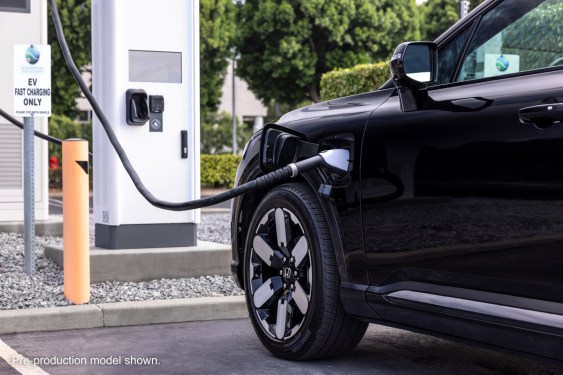Welcome back to TechCrunch Mobility, your central hub for news and insights on the future of transportation.
This week, I reviewed several 10Q reports to understand how EV manufacturers like Rivian and Lucid—along with legacy automakers selling EVs—are responding to the dual challenges of tariffs and the end of federal tax credits. While these documents are dense with legal language, it’s clear that both economic factors are top concerns for their executive teams.
Rivian and Lucid repeatedly mention the One Big Beautiful Bill Act (OBBBA) in their risk factors sections. The OBBBA eliminates certain tax credits for EV buyers and devalues the zero-emissions regulatory credit market. Tariffs and trade policy risks also appear prominently.
Lucid notes in its 10Q that it is assessing the impact of the OBBBA, warning that financial distress among suppliers could disrupt production. Rivian, meanwhile, adopts a more optimistic tone by highlighting the remaining 45X tax credit for domestic battery production.
Ford and GM also reference the OBBBA, though they focus more on potential tariff effects. GM states it can’t yet estimate the financial impact but warns it could harm EV profitability.
Adding to these challenges is a new 100% import tariff on semiconductor chips, which could further strain automakers. The industry still remembers the supply constraints during the pandemic, when a shortage of chips—modern vehicles require between 1,000 and 3,000—severely impacted production.
The Trump administration has indicated exemptions for companies manufacturing chips domestically, but automakers don’t typically produce chips themselves. This could push them toward domestic suppliers. However, details on securing exemptions remain unclear, leaving the industry in a state of uncertainty.
Chinese companies, particularly those in autonomous vehicle technology, appear to be relocating to the U.S. despite trade tensions. This trend is worth watching as it develops.
In other news, electric air-taxi developer Joby Aviation acquired Blade, the helicopter ride-share business, in a deal worth up to $125 million. The acquisition includes Blade’s passenger operations in the U.S. and Europe, giving Joby access to key infrastructure like terminals in New York City.
Additional deals this week include drone startup Destinus purchasing Swiss autopilot firm Daedalean for $223 million, Jeh Aerospace raising $11 million to scale aircraft component manufacturing, and Uzbekistan’s Uzum securing $65.5 million in funding.
Foxconn sold a former GM factory for $88 million, with reports suggesting SoftBank plans to convert it into an AI data center. Lyft partnered with Baidu to deploy Apollo Go robotaxis in Europe by 2026, while Rivian filed a lawsuit to sell EVs directly in Ohio, challenging laws that favor Tesla.
A New York Times report highlights Uber’s ongoing sexual assault problem, and Zoox received federal approval to test its custom-built robotaxis on public roads, resolving a long-standing regulatory debate.
Tesla’s board approved a $29 billion compensation package for Elon Musk, citing the AI talent war, even as the company shut down its Dojo supercomputer program and faced a $242.5 million verdict in a fatal Autopilot crash case.
Finally, Boris Sofman, former head of Waymo’s self-driving trucks and co-founder of Anki Robotics, discussed his new venture, Bedrock Robotics, on The Autonocast podcast. It’s a fascinating listen for anyone interested in autonomous vehicle innovation.
That’s all for this week. Stay tuned for more updates on the evolving world of mobility.

